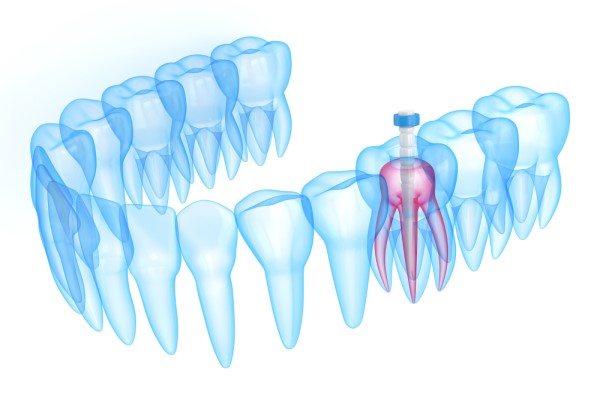Root Canal Therapy from a General Dentist for a Cracked Tooth

Cracked teeth are not enjoyable to deal with, and oftentimes, they require a root canal from a general dentist. Thankfully, dental technology has improved over the years, and having a root canal done is not so bad after all. The procedure itself is pretty straightforward and is quite beneficial for a cracked tooth. Continue reading to find out more.
A quick guide to getting a root canal
Below is an overview of what it is like to undergoroot canal therapy from a general dentist when experiencing a cracked tooth. Having an understanding of this information can be helpful to those who are not sure what to expect.
Preparation
A general dentist will prepare the oral cavity for the root canal. There are a few important things involved, including numbing the tooth and surrounding area. This step is necessary in order for the procedure to take place as it eliminates pain and ensures comfort. Numbing agents are usually administered via cream or a shot, both of which work well.
After numbing, a sedative might be administered, which helps to ease nerves. Sedatives may be provided in the form of nitrous oxide or a pill. Then, the cracked tooth itself is prepared. The general dentist usually cleans it and ensures that it is dry for the procedure.
The procedure
Root canal therapy involves removing the infected or damaged parts of the tooth. Next, the entire tooth is cleaned out with a special dental tool. This part is crucial as it involves the removal of the nerves, which is the main part of the procedure. From there, the dentist will fill the tooth with rubber Gupta, which is a material that seals the tooth off and stops it from having the ability to become further infected.
A temporary dental crown is required to top the previously cracked tooth. The general dentist will place it after the root canal is finished and then a few weeks later, the permanent one is placed.
Afterward
After a root canal is complete, general dentists recommend avoiding hard or sticky foods for a couple of days as this could pull the temporary crown off and irritate the freshly treated tooth. Of course, soft foods and liquids are safe to consume. Over-the-counter pain relievers can be taken to ease swelling and reduce discomfort. Lastly, it is recommended to continue oral hygiene, just gently to ensure that an infection does not form.
Consult with a general dentist
Any further questions or concerns about root canal therapy should be addressed by a general dentist. The dentist can evaluate a cracked tooth and determine what type of treatment is required. In the event that a root canal is necessary, the patient will be well informed on what to do in order to prepare, as well as how to handle life afterward. Reach out today to find out more or to get scheduled for an appointment with the general dentist.
Request an appointment here: https://creatingsmiles.dental or call Creating Smiles Family Dental PC at 9733022082 for an appointment in our Bloomfield office.
Check out what others are saying about our dental services on Yelp: Root Canal Treatment in Bloomfield, NJ.
Recent Posts
Root canals effectively treat infections or damage inside a tooth, offering a chance to save the tooth and restore oral health. While these procedures are widely successful, understanding the potential risks can help patients feel more confident and prepared. Knowing how to avoid complications is important in ensuring the best possible outcome.Root canals involve carefully…
Dentists recommend root canal treatment for damaged, diseased, or infected teeth. The treatment aims to eliminate bacteria within the tooth's pulp and save a patient's natural teeth. After a tooth matures, it no longer requires the pulp for nourishment. The dentist removes the infected pulp, disinfects the inside, and seals it to prevent reinfection.Decay and…
The last thing you want to do after a dental emergency develops is to drive longer than necessary to an emergency dentist because you were unable to find a qualified one near you. This guide provides useful tips to help you find an emergency dentist so that you can get the prompt treatment you need…
Restoring your smile after damage requires a professional, namely a restorative dentist. These specialists focus on repairing and restoring damaged teeth, addressing issues affecting your smile's appearance and overall dental health. Whether through direct treatments or indirect restorations, they provide various services tailored to meet individual needs. Here are five of the most popular services…
